Sociology & Criminology
As social scientists, sociologists and criminologists apply scientific reasoning and methodologies to understanding the array of formidable problems facing our country and our world.
-
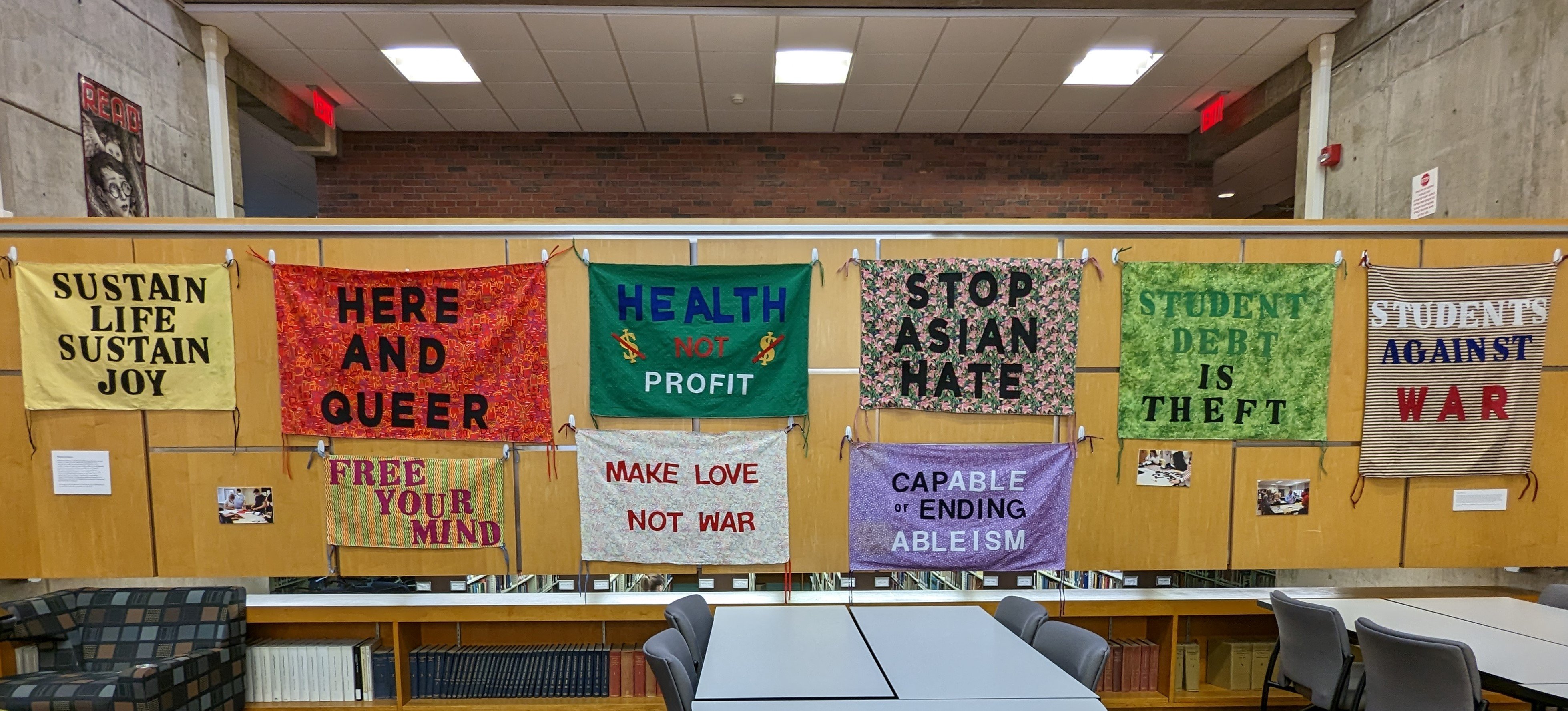
#BannersForJustice is a collection of protest banners created by FSU students, faculty, and staff at a workshop organized by Dr. Zeynep Gonen and led by artist, educator, and writer, Aram Han Sifuentes. Check out the exhibit at Whittemore Library!
-
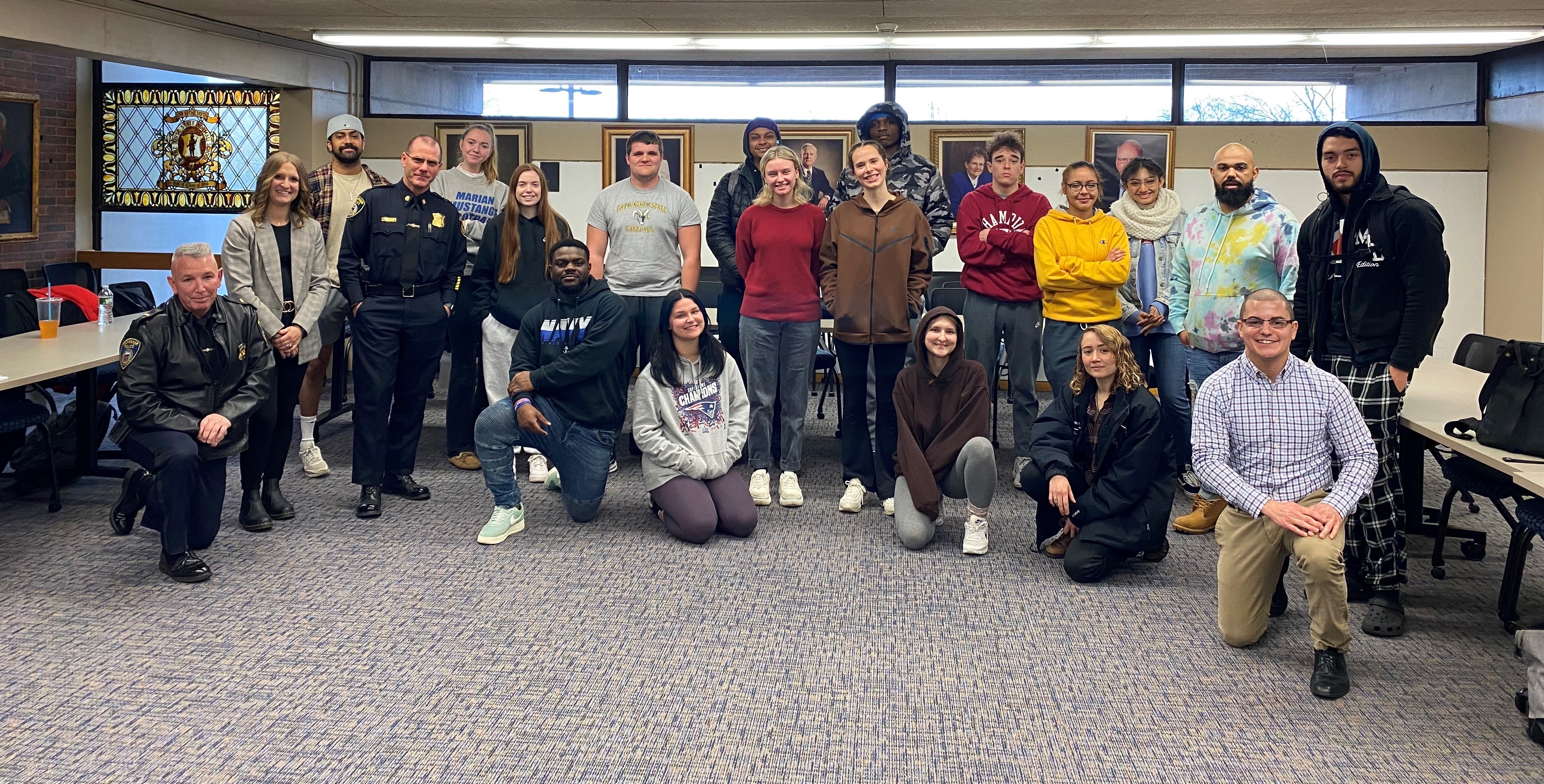
Representatives from Job Corps, the Framingham Police Department, and Advocates, Inc., a Metrowest non-profit, visited Professor Franquiz’s Juvenile Delinquency class for a roundtable discussion and Q&A on prevention, diversion & reentry.
-

Black Lives Matter Teach-In
-
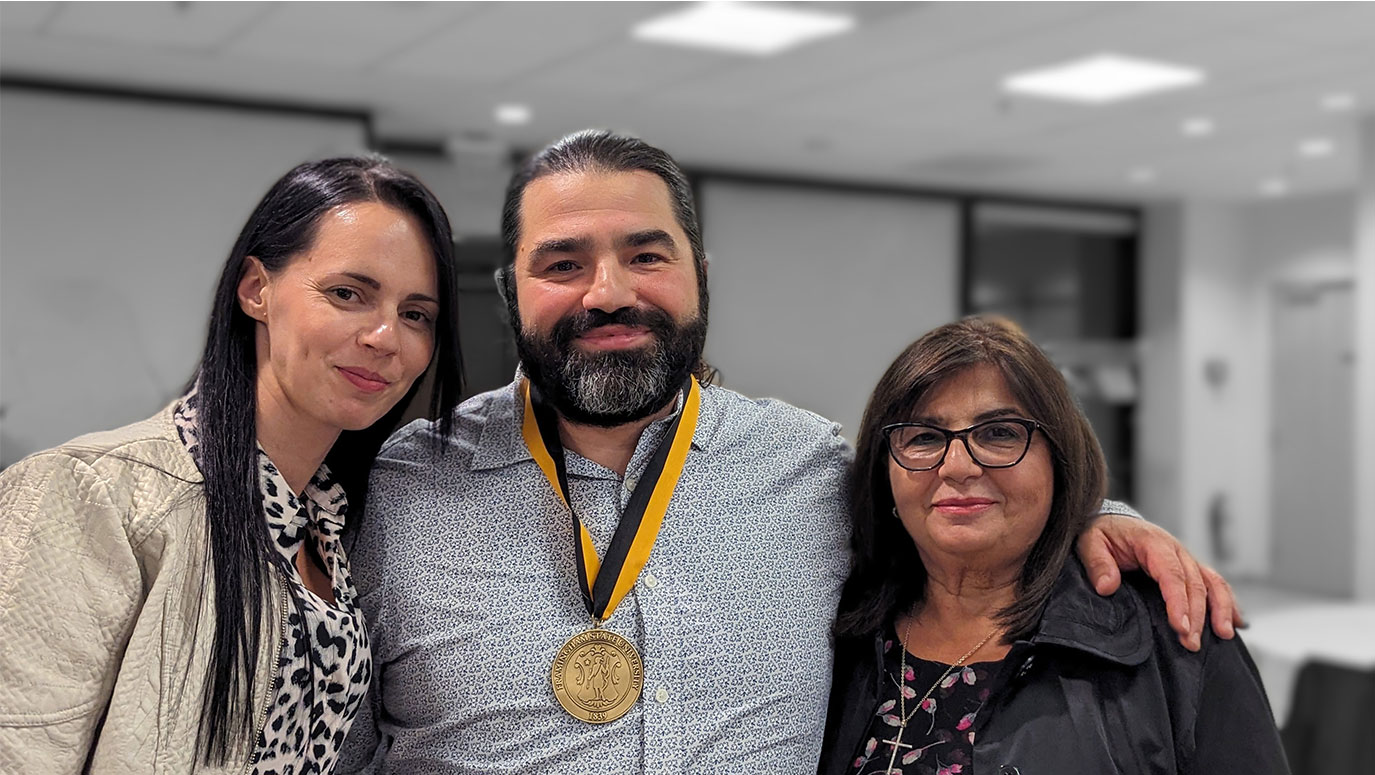
Dr. Demetri Brellas is the 2023 recipient of the Award for Excellence as the Distinguished Visiting Faculty of the College of Education and Social & Behavioral Sciences!
The Department of Sociology & Criminology is home to two majors and three minors. It is also home to a vibrant community of committed faculty and engaged students. The relationships between students and faculty – through teaching, researching and service – are what makes it all come together. You will find four years with us a rewarding and enriching experience.
Sociology Program Learning Objectives:
- Recognize the impact of social patterns, human diversity, cultural difference, and globalization on social life. [Comprehension]
- Use sociological principles, theories, and concepts in the interpretation of social phenomena. [Application]
- Design and conduct an empirical sociological research project using quantitative and qualitative methods. [Synthesis]
- Assess the extent, consequences, causes, and potential solutions of social problems and inequalities. [Evaluation]
Criminology Program Learning Objectives:
- Explain criminal behavior, criminal justice systems, constructions of deviance and conformity, and mechanisms of social control. [Comprehension]
- Apply criminological schools of thought to interpretations of the social world. [Application]
- Design and conduct an empirical criminological research project using quantitative and/or qualitative methods. [Synthesis]
- Assess causes and consequences of inequality as they relate to crime, criminal behavior, and the criminal justice system. [Evaluation]
The degree programs we offer include Sociology, Criminology, and Anthropology. What they all share is a determination to understand societies and cultures, through time and in any place imaginable. Importantly, what motivates many of us in the department is a desire to work out how we can impact the world in a positive way, how we can bring about social change.
You can become a part of this community. So join us – we will be pleased to welcome you!
Department of Sociology & Criminology
Spotlight on Sociology & Criminology
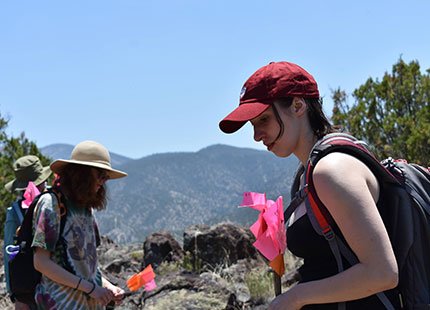
Archeology Students
Dr. Ben Alberti is in the field with several FSU students with the Gorge Archaeological Project, a joint venture directed by Columbia University professor, Dr. Severin Fowles. Students Sarah Morgan, Nikki Husselbee, and Emily Petro are investigating rock art and landscape in the Rio Grande Gorge in northern New Mexico. You can follow their exploits on the unofficial Facebook page, FSU Gorge.
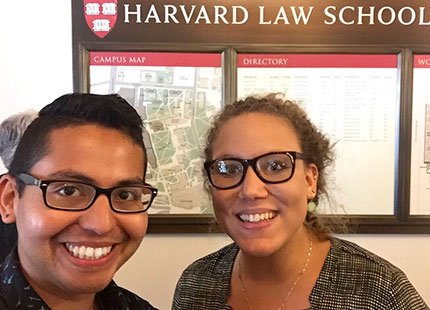
Criminology Major
"I came in with the desire to be a District Attorney, and have done everything in my power in order to achieve the career goal. Having interned at both a prison and a District Court, I have gained the experience that has strengthened my love for the criminal justice system as a whole. Upon sharing my goal of becoming a District Attorney with my professors, they both encouraged and challenged me to strive to achieve it."
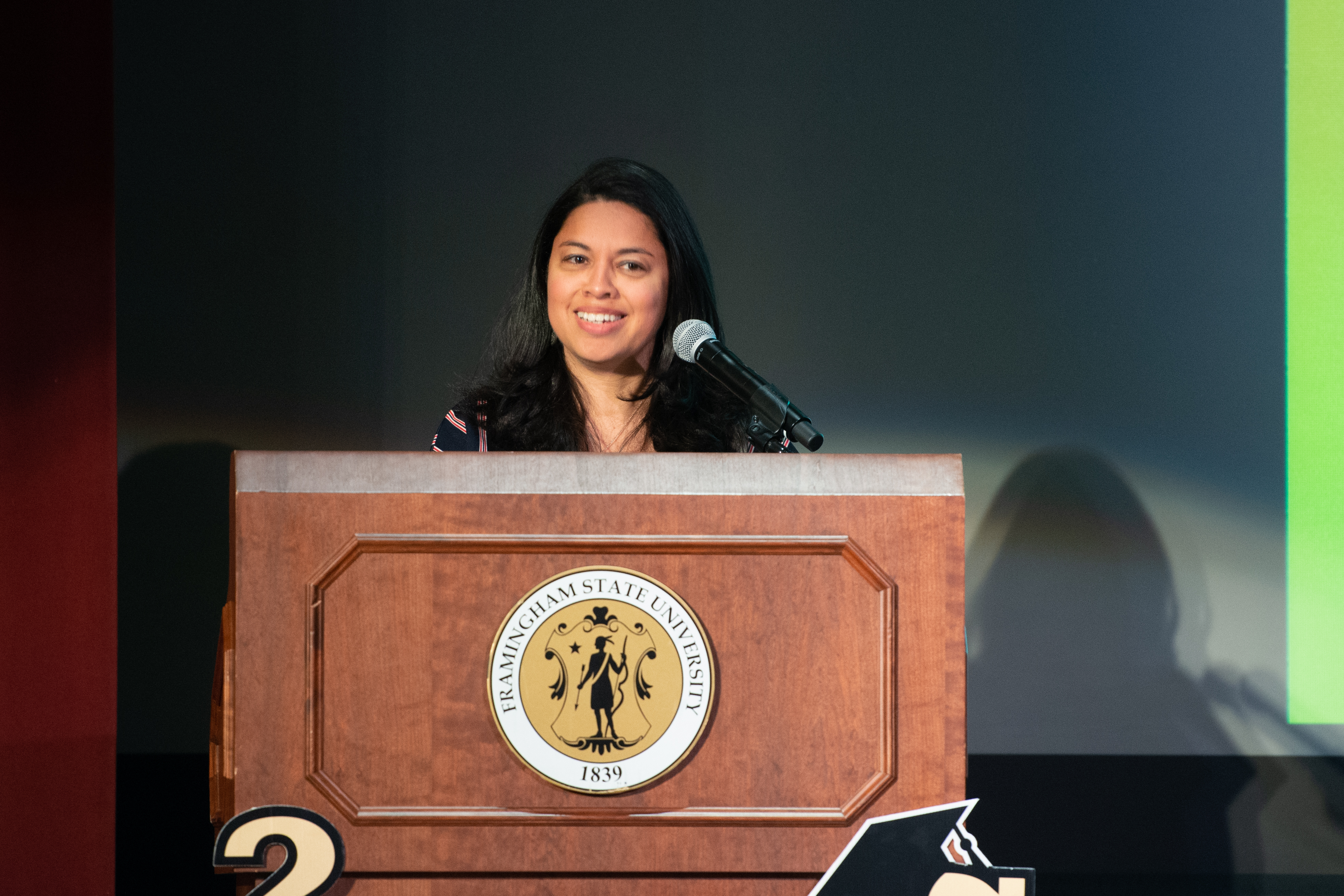
Associate Professor
Dr. Patricia Sánchez-Connally was in born in El Salvador and immigrated to the United States when she was eleven years old. She is a proud FSU alumna, an associate professor, advocate, and activist who works with young adults and higher education professionals to bring awareness to issues of social justice. Her research focuses on ways that communities of color create different forms of capital to resist racism, discrimination, and oppression. Dr. Sánchez-Connally created the FSU Border Awareness Experience in collaboration with an organization in El Paso, TX that offers hospitality and services to refugees and migrants. During spring break, ten students travel to the border where they volunteer and learn about challenges that migrants face. In 2019, she was awarded the “Women Making History Now” award for her leadership in the community and commitment to public service. Most recently, she was named the recipient of the Distinguished Faculty Award for Excellence and Teaching.
Our Programs
-
Majors/Concentrations
-
Minors
Criminology Program Antiracist Statement
As we near the end of a tumultuous 2020 fraught with the overlapping crises of the pandemic, racial justice protests, and an economic recession, the faculty of the Criminology program express our solidarity with the ongoing movements decrying centuries long systemic injustices against Black, Indigenous, and other people of color. We are enormously pained, angry, and saddened by the murders of Breonna Taylor, Ahmaud Arbery, George Floyd and the many more Black lives that have been taken throughout history. Equally, we are inspired by the passion, activism and protest that has emerged around the world of which many of you have and continue to participate in as students of criminology.
Our proximity to the criminal-legal system presents a unique opportunity for us to remain committed to antiracist work and advancing equality and justice. As you know, our program is sociologically-oriented and grounded in a strong liberal arts curriculum. While we undoubtedly attract students interested in criminal-legal careers, our intention is to introduce students to a broader array of career opportunities beyond that provided by training in criminal justice.
Our program understands “crime” and criminalization as social constructs, and examines the underlying social inequalities that shape the responses to and experiences of crime. Furthermore, our program highlights how structures of power: such as racism and white supremacy, have influenced social control and punishment through present-day. As students, we encourage you to implement creative thought about the role of social action in transforming criminal-legal policy and responding to harm. We want our students and the larger community to know that we stand with you in support and will continue to center antiracist efforts as we work toward a more just world.
